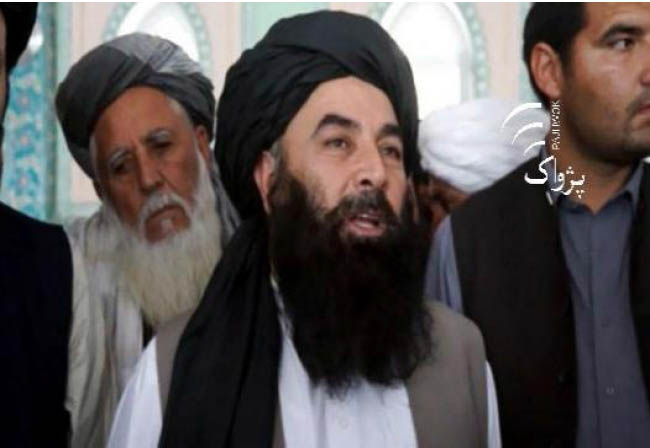KABUL - A former Taliban minister on Monday called the Afghan government’s peace efforts as “symbolic” but he believed the conflict in Afghanistan could only be resolved through dialogue.
The unity government in Kabul has intensified its efforts at establishing peace in the country. The fourth quadrilateral meeting held in capital Kabul announced that Pakistan will host direct talks between the Afghan government and the Taliban in early March.
But after recent deadly suicide attacks in Kabul and eastern Kunar province, the Afghan government said it would not negotiate peace with militant factions hell-bent on creating violence.
Sayed Akbar Agha, a former Taliban leader in an exclusive interview with Pajhwok Afghan News said the achievement of peace was the desire of all Afghans and peace could be achieved only through negotiations.
He dubbed the four-ways talks in Islamabad and Kabul as “ineffective” because details of what discussed in the talks remained hidden from the nation and Taliban representatives were not present in the talks involving Afghanistan, Pakistan, China and the US.
A former justice minister during Taliban’s regime, Agha said: “Both the warring sides should show flexibility in stance on making the peace process effective. If the government accepts some legal demands of Taliban, I believe the peace process would succeed.”
Akbar Agha, who is leading the Afghanistan Salvation High Council, said that the Afghan government had not been honest in its efforts to end the ongoing war and to advance the peace process.
“When a peace process begins with realities, no side including the Taliban and the government could deny it,” he said. “The outlook of efforts by Kabul doesn’t inspire hope,” he added.
Despite being divided into different factions, the Taliban were united in demand stance over foreign troops’ withdrawal from Afghanistan, he said.
After the disclosure of Mullah Mohammad Omar’s death, the Taliban elected Mullah Akhtar Mansoor as his successor, a move that resulted in differences within the movement and led to the creation of a splinter group led by Mullah Rassoul.
Akbar Agha hailed the appointment of Sayed Ahmad Gilani as the new chairman of the High Peace Council (HPC). He said if the council functioned as an authorised and independent body, it could play an effective role in the peace process.
He said Gilani had not been involved in any conflicts and had good relations both with the Taliban and the government. “Therefore choosing him as HPC head is a positive step.”
“Not all people in the HPC are neutral and this weakened its role. The government also does not give the council full authority to make independent decisions,” he said, asking the government not to interfere in HPC affairs regarding the peace process.
Akbar Agha warned the government’s performance was weakening by each passing day and the situation might deteriorate if the regime did not honestly struggle for achieving peace. (Pajhwok)
Home » Afghanistan » Ex-Taliban Minister Pessimistic about Peace Bid
Ex-Taliban Minister Pessimistic about Peace Bid

